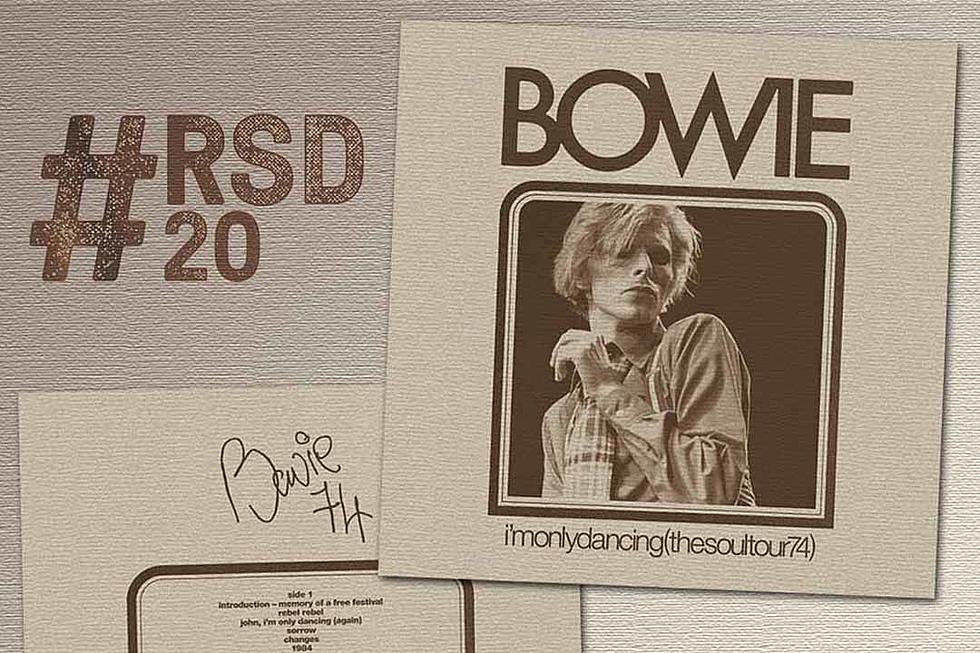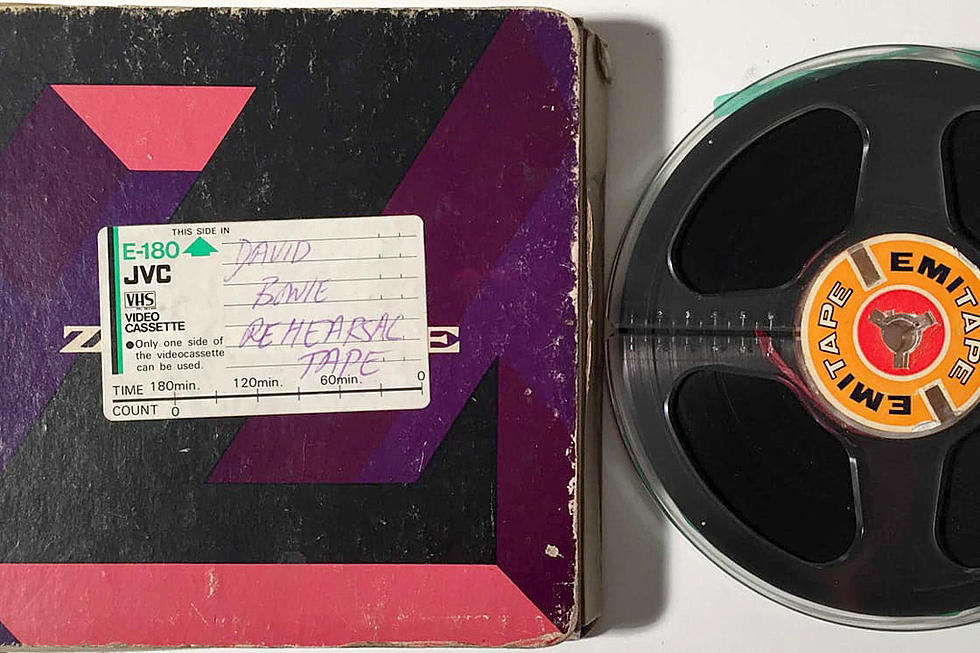
Great Artist, Bad ’80s (A Cautionary Tale)
The big music industry buzz last week was the release of Taylor Swift's new album, '1989.'
"Taylor Swift," of course, is the stage name of 54-year-old Norwegian death metal guitarist Ollie Gunderson, who created a female character 30 years his junior after years of struggling to make it with his band, Satanic Pig Orgy. "When I put on my Taylor Swift costume, I just feel so much, I don't know, lighter than I do with SPO," the 300-pound guitarist recently told an interviewer.
This is only one of many facts you'll find in my new book, 'Stuff I Make Up,' available absolutely nowhere. But while I'm on the topic of '1989,' an album Swift describes as her rebirth as a synthpop princess, I'm reminded of the many great artists who struggled to remake themselves in the decade she evokes in the album's title. The '80s were the era of gated snare drums, DX7 keyboards, loud suits, and lost rock stars. Some prospered financially but floundered artistically, some made great records that made no money, and some simply belly flopped.
David Bowie is the undisputed king of the great artists who suffered a bad '80s.
David Bowie is the undisputed king of the great artists who suffered a bad '80s. He opened the decade with 1980's brilliant 'Scary Monsters,' an album every bit as essential as the "Berlin trilogy" that preceded it. 'Ashes to Ashes' remains one of the greatest callbacks in the history of popular music, rescuing Major Tom of 'Space Oddity' from his endless trip through eternal darkness for one more go 'round at 45 RPM:
After that came 1983's 'Let's Dance,' a super slick pop record produced by Chic's Nile Rodgers. Even more than 'Ziggy Stardust,' this is the album that brought Bowie to the mainstream. In his pastel suits and with his bleached blond hair stacked higher than a roast beef sandwich, the Thin White Duke was the definitive '80s stadium rocker.
From there it was a downhill slide into more and more formulaic records, a trend that reached its nadir with 1987's embarrassing 'Never Let Me Down:'
Fortunately for us, Bowie found his way out of the pastel wilderness and returned to form in the '90s. And lest we think that's the end of the story, last year's 'The Next Day' proved that the Dame still has some tricks up his sleeve.
Bowie's pal Iggy Pop fared pretty well both commercially and artistically during the synthpop decade. Granted, the money came mostly from Bowie covering his songs ('China Girl,' 'Tonight'), but he did okay on his own. 'Real Wild Child,' released on 1986's 'Blah Blah Blah,' remains essential Iggy listening:
The unwritten rule of "great artist, bad '80s" seems to be that the bigger you were prior to the Spuds MacKenzie decade, the harder you fell. Jefferson Airplane played Woodstock and brought 'Somebody to Love' and 'White Rabbit' to the party, but by 1985 they were reduced to Starship, and somehow this happened:
Unlike Bowie, Starship never recovered from their bad '80s. Singer Mickey Thomas still tours that era of the band's material as 'Starship Featuring Mickey Thomas,' and guitarist Paul Kantner has his version of Jefferson Starship out on the road, too. Singer Grace Slick retired from music long ago and now focuses on painting.
'We Built This City' might be music's greatest crime against humanity, but no musician did more damage to his reputation during the '80s than Stevie Wonder. From the 'Fingertips'-era of Little Stevie Wonder all the way through the super funky '70s, Wonder was undeniable. 'Sir Duke'? 'Superstition'? Come on!
How does a guy that funky get roped into 'Ebony and Ivory' with another '80s victim, Paul McCartney? But his duet with Sir Paul is much more listenable than this No. 1 from 1984:
Don't blame the '80s for the lack of Stevie's funkiness, and don't blame middle age, either. P-Funk all star George Clinton had 10 years on Wonder when he released 1982's exceedingly cool 'Atomic Dog.' A few years later he produced the Red Hot Chili Peppers' sophomore album, 'Freaky Styley.' No, something else took the funk out of Stevie during the '80s. Maybe his braids were too tight.
Funk wasn't the only genre to take a beating, either. Seventies rockers Heart, fine purveyors of 'Crazy On You' and 'Barracuda,' made a run for the Top 40 that filled their coffers but alienated their fans. The Wilson sisters were selling big again by 1986, but they were also unleashing cuts like this on an unsuspecting universe:
Heart has made a remarkable artistic comeback, by the way. Their last three studio albums are rock solid, and very little of their '80s material finds a home in their live set. Ann Wilson still has those amazing pipes, too.
Rod Stewart, Steve Winwood, Elton John, Mick Jagger, on and on -- the list of big stars that traded credibility for slick production and a boom boom bap beat is longer than I have room for here. Even Bruce Springsteen busted out the Molly Ringwald dance in the 'Dancing In the Dark' video.
So what holdover from an earlier era did it right in the synthpop '80s? My vote is Peter Gabriel, who went from avant garde prog rocker with Genesis to stadium filler with 1986's 'So,' all without gambling his artistic integrity. Album opener 'Red Rain' remains one of the greatest singles released during the decade.
Let's hope it doesn't mean a middle-aged Arcade Fire releasing 'We Rebuilt This City.'
If history is any indicator, we'll see the Taylor Swifts of today scrambling in about ten years to remain contemporary. Who knows what that will look like in the post-apocalypse dystopia of 2024? Let's just hope it doesn't mean a middle-aged Arcade Fire releasing 'We Rebuilt This City.'
More From Diffuser.fm









